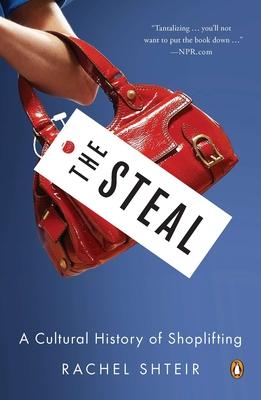The Steal begins when shoplifting entered the modern record as urbanization and consumerism made London into Europe's busiest mercantile capital. Crossing the channel to nineteenth-century Paris, Shteir tracks the rise of the department store and the pathologizing of shoplifting as kleptomania. In 1960s America, shoplifting becomes a
symbol of resistance when the publication of Abbie Hoffman's Steal This Book popularizes shoplifting as an antiestablishment act. Some contemporary analysts see our current epidemic as a response to a culture of hyper-consumerism; others question
whether its upticks can be tied to economic downturns at all. Few provide convincing theories about why it goes up or down.
Just as experts can't agree on why people shoplift, they can't agree on how to stop it. Shoplifting has been punished by death, discouraged by shame tactics, and protected against by high-tech surveillance. Shoplifters have been treated by psychoanalysis, medicated with pharmaceuticals, and enforced by law to attend rehabilitation
groups. While a few individuals have abandoned their sticky-fingered habits, shoplifting shows no signs of slowing.
In The Steal, Shteir guides us through a remarkable tour of all things shoplifting--we visit the Woodbury Commons Outlet Mall, where boosters run rampant, watch the surveillance footage from Winona Ryder's famed shopping trip, and learn the history of antitheft technology. A groundbreaking study, The Steal shows us that shoplifting in
its many guises--crime, disease, protest--is best understood as a reflection of our society, ourselves.
